Power Brokers of Canberra’s Corridors: Billionaires, bankers and big business
Governments come and go but behind the scenes are players pulling the strings and wielding influence unseen by the public. Today, the Sunday Mail shines a light on who is big behind the scenes and how they operate to influence our daily lives. SEE THE FULL LIST.
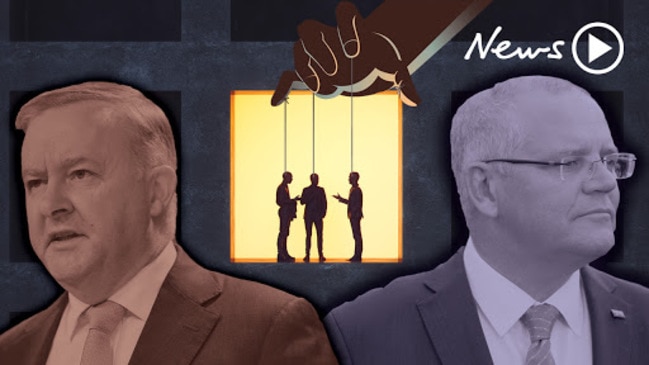
News
Don't miss out on the headlines from News. Followed categories will be added to My News.
Billionaire mining magnate Andrew Forrest is clear-eyed about how difficult it will be to clean up the world’s oceans.
But he believes plastic pollution is an “urgent crisis”.
It’s one of the main issues he wants to tackle using all of the power and influence at his disposal.
The prominent philanthropist and Fortescue Metals Group chairman is among 100 of the country’s most influential people named on News Corp’s Power Brokers list today.
AFL boss Gillon McLachlan, Australia’s richest man Anthony Pratt and former foreign affairs minister Julie Bishop are just some of the other individuals on the list, which shines a light on who wields power and influence behind the scenes in Australia.
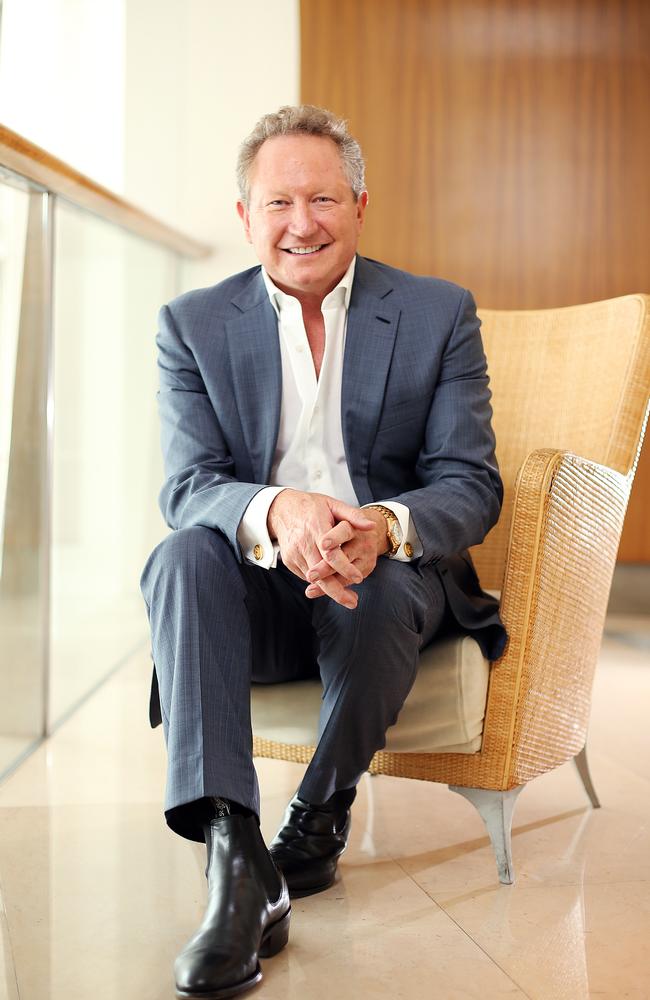
Billionaires, bankers, Canberra’s top lobbyists, the nation’s most powerful spy and Scott Morrison’s closest advisers are also on the list.
Forrest was included as someone with connections to Australia’s most powerful political leaders who has used his position to push for and achieve real change.
The West Australian businessman and his wife Nicola hosted fundraising events for both Scott Morrison and Bill Shorten during the election at their home in Perth’s beachside suburb of Cottesloe.
His influence is also evident in major companies and political leaders backing his campaigns to end modern slavery and to boost the legal age to buy cigarettes in Australia to 21.
It was his 2014 report that prompted then-Prime Minister Tony Abbott to launch the cashless welfare card, which is now operating across sites in Queensland, South Australia, Western Australia and will soon be launched in the Northern Territory.
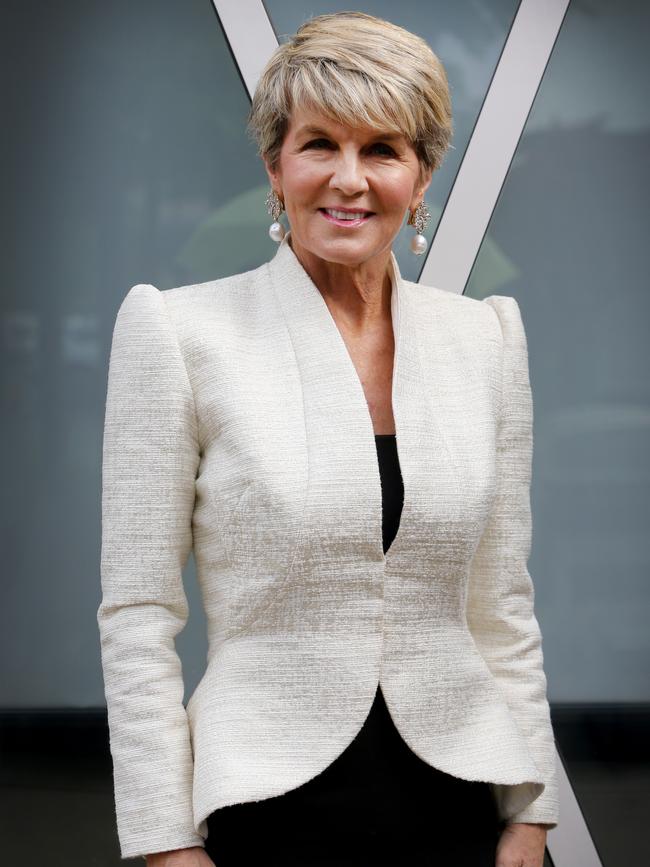
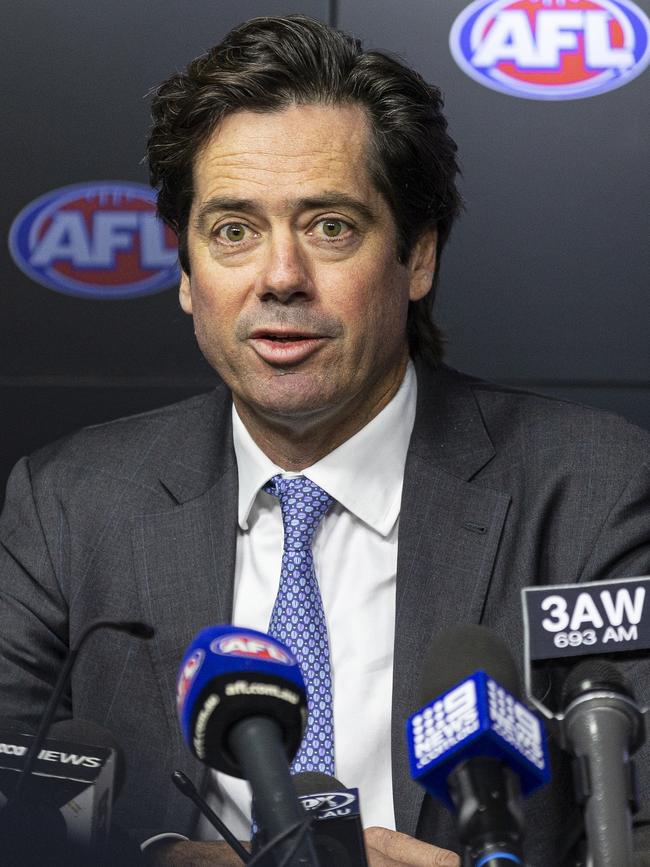
Forrest has been ramping up his push to reduce ocean plastic pollution, including committing $100 million to marine research and protection through his Minderoo Foundation.
It also includes calls for a tax on polymer to help reduce the amount of single-use plastics being produced and used.
“There is no question that humanity faces many challenges, some so large and complex that they are seemingly impossible to unpack,” Mr Forrest told News Corp.
He said the scale of some of the issues was “daunting”, highlighting that research showed the ocean would contain one tonne of plastic for every three tonnes of fish in just six years.
But Forrest said he was driven by a goal to create lasting positive change to global issues.
“Collaboration is required to drive change on issues like this and ensure it is adopted at all levels by all sectors,” he said.
“Nicola and I do what we can to work with others to give power back to communities and individuals and empower them to create a better future.”
Prime Minister Morrison has also flagged a desire to tackle ocean plastic pollution.
He struck a deal with state premiers last month to work towards banning all domestic waste exports, such as plastic, tyres, glass and paper.
BILLIONAIRES, BANKERS AND BIG BUSINESS
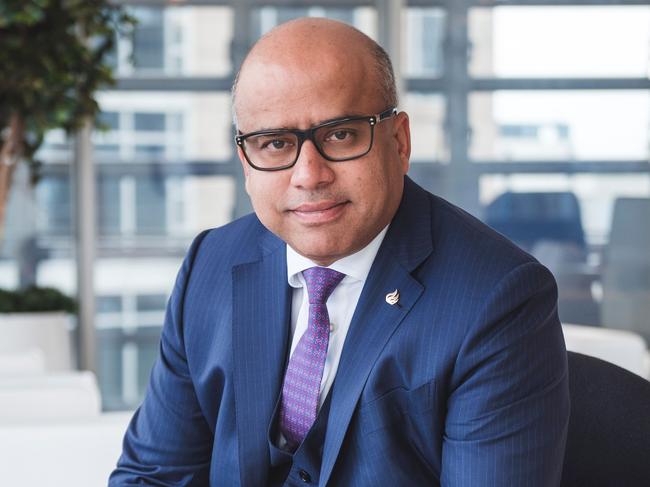
SANJEEV GUPTA
British billionaire Sanjeev Gupta has developed close ties with the most powerful figures on both sides of Australian politics very quickly.
The Indian-born steel magnate was one of the VIPs invited to Scott Morrison’s official election night party in Sydney at the Sofitel Wentworth.
It’s an impressive feat for a businessman who only burst onto the Australian scene in 2017 when his company bought the Whyalla steelworks.
Gupta has also cultivated ties with Bill Shorten, who was widely tipped to win the 2019 election.
The key Australian lobbyist for Gupta’s GFG Alliance is Shorten’s former staffer Stephen Michelson, who stepped down from the then-Opposition leader’s office in 2017 when a decade-old photo of a blackface costume was found on his Facebook.
Both Shorten and Morrison have held press conferences and photo ops with the billionaire, including during the election campaign.
But his power and pull isn’t just in the jobs and economic stimulus his multi-billion dollar investment in Australia has created.
Gupta is also a very public supporter of renewable energy and is walking the talk with a $1 billion plan in South Australi at hat includes a lithium-ion battery bigger than Elon Musk’s and a 780,000-panel solar farm that will generate enough electricity to power 96,000 homes.
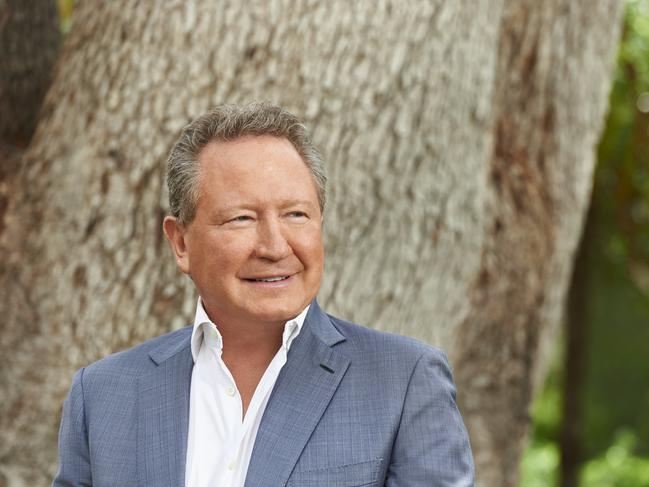
ANDREW ‘TWIGGY’ FORREST
Iron Ore magnate Andrew Forrest is undoubtedly one Australia’s most influential people.
The West Australian billionaire and his wife Nicola hosted fundraising events at their home in leafy Perth beachside suburb of Cottesloe for both Scott Morrison and Bill Shorten during the election campaign.
Business leaders paid $3000 a head to meet Shorten at the couple’s Pine Lodge mansion, while Morrison’s event just two night slater cost $2200 a head.
WA Liberal powerbrokers Julie Bishop and Mathias Cormann attended Morrison’s party, along with Wesfarmers chair Michael Chaney — another figure on the power list.
Forrest’s power is evident in the string of social justice and health issues he has championed in recent years, as well as his political and business connections.
When he speaks, Australia listens.
At Tony Abbott’s request, he led an inquiry into indigenous disadvantage that prompted the government to launch the cashless debit card.
His push to end modern slavery was also endorsed by the Vatican in 2014. Pope Francis later distanced himself from the campaign over concerns it was a business initiative, which Forrest’s charity denied.
Forrest’s Minderoo Foundation is also driving a push to raise the age for buying cigarettes from 18 to 21.
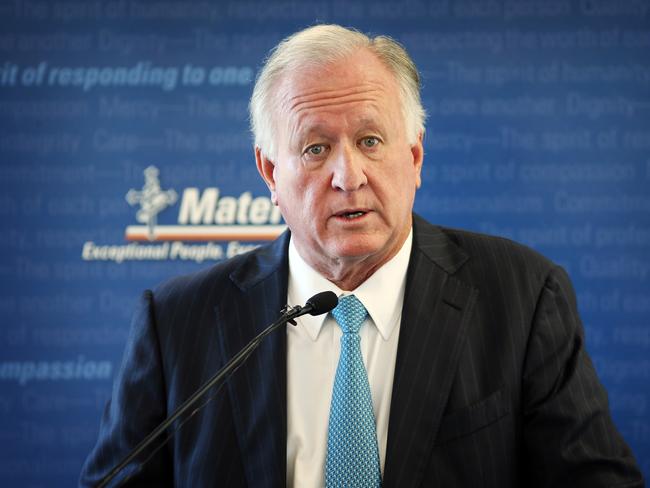
BRIAN FLANNERY
Aside from being one of the owners of Delta Electricity, rich-lister Brian Flannery is also a big donor to the nation’s major political parties.
Flannery has made hefty donations to the Nationals, the Liberal National Party and Queensland Labor both privately and through his property business Ganra.
He donated $30,000 to the Nationals, $2000 to Labor and $20,000 to the LNP in 2017 and $31,600 to Queensland Labor in 2016.
Flannery, who co-owns Delta with fellow rich-lister Trevor St Baker, has significant power and pull given the government is in the midst of trying to lower Australia’s power prices and prevent blackouts.
He personally met with then-Treasurer Scott Morrison in 2017, along with St Baker, as well as with then-Prime Minister Malcolm Turnbull and then-Energy and Environment Minister Josh Frydenberg about Delta’s plans for continued investment in coal-firepower stations.
It was when Turnbull was trying to convince AGL to sell or keep open the Liddell Power Station beyond 2022 amid fears of an energy shortfall.
Delta is also now potentially in line to receive federal government funding for an upgrade to its Vales Point coal-fired power station.
Prime Minister Morrison announced in March that the ageing station had been short-listed as one of 12 projects the government would consider underwriting with public funds.
Sixty-six projects had been vying for the support after the Australian Competition and Consumer Commission recommended the government consider backing new energy players in its 2018 report on how to lower power costs.
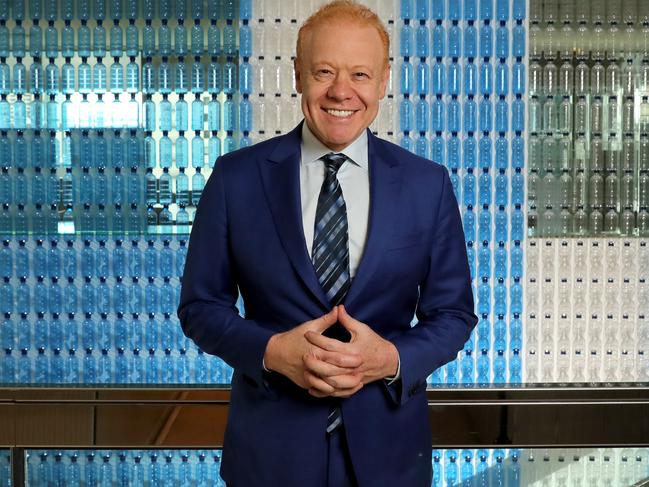
ANTHONY PRATT
Australia’s richest man has become even more influential in recent years thanks to Donald Trump.
The billionaire packaging magnate has developed a good relationship with the US President through his vocal support and a $2 billion pledge to create manufacturing jobs in the US, mainly in the Midwest — Trump heartland.
Pratt was one of the VIPs to score an invite to the president’s exclusive Mar-a-Lago New Year’s Eve party this year.
The connection has made him invaluable to the Australian government in its bid to develop strong ties with the Trump Administration — particularly in the early days when Malcolm Turnbull got off to a rocky start with a terse phone call with the President about the US refugee deal.
Pratt, the executive chairman of Visy Industries, also continues to be a significant political donor and was one of the VIP’s at Bill Shorten’s election night party at Melbourne’s Hyatt Place hotel.
Pratt Holdings donated a staggering $205,000 to the Liberal Party in 2017-18, $830,000 in 2015-16 and $235,000 in 2014-15.
Its contributions to Labor’s coffers have been much smaller but the Pratt family was bipartisan in helping both parties raise money in the lead up to the election, hosting fundraisers for both Labor and the Liberals at the family’s Raheen mansion in Melbourne.
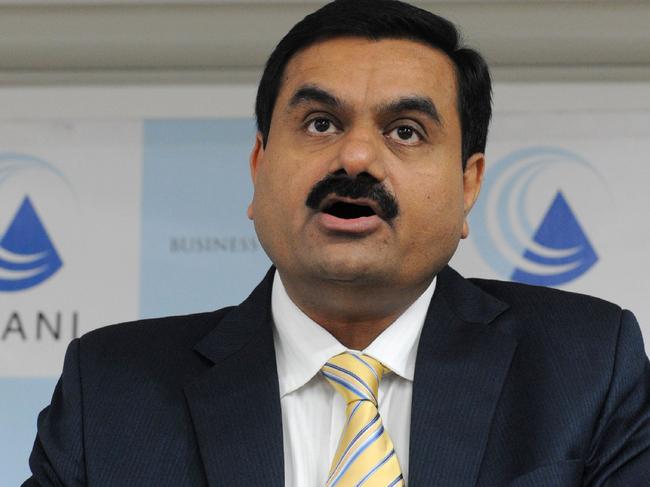
GAUTAM ADANI
Indian billionaire Gautam Adani’s influence in Australia is undeniable.
His Carmichael coalmine in Queensland became one of the biggest polarising issues in Australia ahead of the 2019 election.
It was a key factor in Scott Morrison’s “miracle” win, which prompted Queensland Premier Annastacia Palaszczuk, who read the writing on the wall for the 2020 state election, to declare she was “sick of the delays” and to fast track final approvals for the mine.
Construction began in June.
But it took almost a decade for Adani to get to that point, during which time the mining giant employed lobbyist firms in Australia with ties to country’s major political parties and won a series of concessions.
Adani’s current lobbyist Govstrat is led by Damian Power, former treasurer for the Queensland Labor Party.
Other consultants for the firm include former Queensland Premier Rob Borbidge, who led the state’s National Party, Jeff Popp, a chief of staff to former deputy premier Jeff Seeney and Ken Macpherson, a former chief of staff for Bill Shorten.
Adani Mining has also donated to political parties, including $35,000 to the Liberal Party in three separate donations in2017-18 and $15,000 to Pauline Hanson’s One Nation in 2017-18
Labor returned $2200 in donations from Adani in 2016-17.
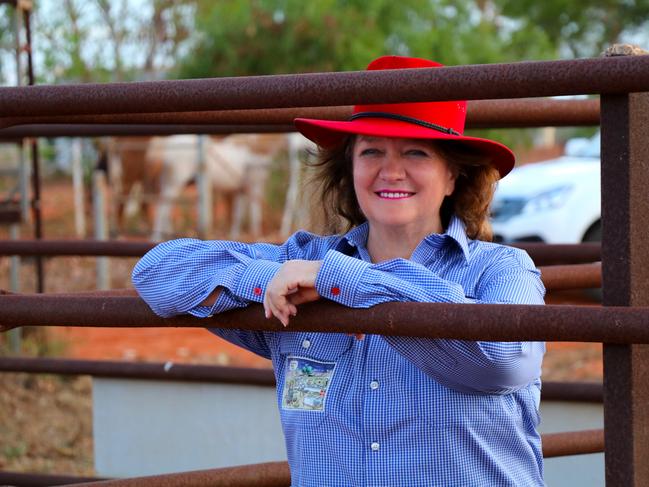
GINA RINEHART
As Australia’s richest person — and the world’s 75th richest person — Gina Rinehart wields obvious power.
The mining magnate and cattle queen is also a significant political donor and has developed close ties with prominent politicians and rising stars for years.
Rinehart is particularly close to Barnaby Joyce, and even flew to Canberra to watch his maiden speech in 2013 when he switched to the House of Representatives.
He later rose to become Nationals leader and Deputy Prime Minister.
Rinehart caused a stir in 2017 when she presented Joyce with a $40,000 cash award for being a “champion” of the agriculture industry, which he initially accepted but then handed back after a media firestorm.
Julie Bishop, Joyce and Teresa Gambaro were also drawn into controversy when Rinehart flew them to India in 2011 on a private jet to attend the wedding of one of her business partners’ granddaughters.
Rinehart has had the ear of politicians since the 1970s when she would host private jet tours organised by her father, Lang Hancock, for up and coming Liberals like Eric Abetz and Peter Costello to Western Australia’s Pilbara region.
While the donation’s disclosure register shows Rinehart hasn’t donated to political parties in a few years, Hancock Prospecting Pty Ltd gave $58,000 to National Party in 2015-16, $22,000 the year before that and $55,000 in 2012-13
It also donated $14,300 to the Liberals in 2013-14 and $8,250 to the Queensland LNP the same year.
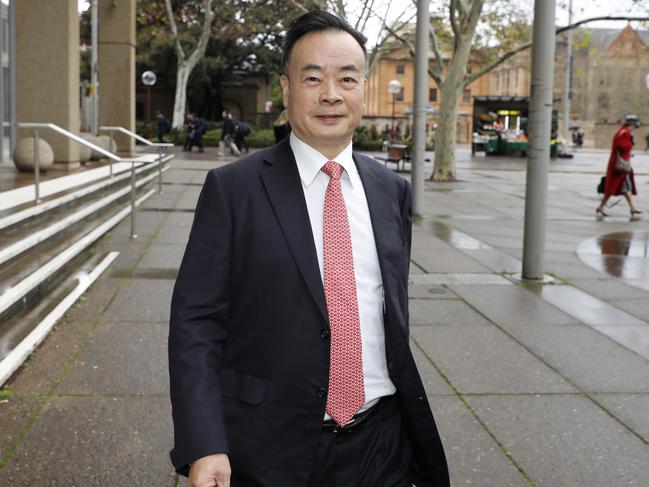
CHAU CHAK WING
Chinese businessman Chau Chak Wing’s status as a power player has been reduced since it emerged that ASIO had warned Australia’s major political parties about his connections to the Chinese Communist Party and his name became linked to an FBI bribery case.
Dr Chau — known for buying James Packer’s Sydney home for $70 million in 2015 — has cultivated political contacts in Australia since the early 2000s.
The property developer’s companies have donated about $4 million to the country’s major political parties, and he partially funded trips to China for Kevin Rudd, Wayne Swan, Stephen Spencer, Tony Burke and Mark Arbib in 2004 and 2005.
The parties have stopped accepting his donations after ASIO’s warning was reported in the media in 2017.
Liberal MP Andrew Hastie then used parliamentary privilege last year to accuse Dr Chau of being the alleged “co-conspirator 3” to another Chinese property tycoon who was convicted of paying bribes to former United Nations General Assembly President John Ashe in 2013.
Mr Chau denies the allegations and has never been charged or accused of any wrongdoing.
The businessman has continued to donate millions to Australian universities and charities, including a $15 million donation to Sydney University, $20 million to the University if Technology Sydney and $50,000 to Legacy in April for the charity’s Kokoda Challenge.

JENNIFER WESTACOTT
Jennifer Westacott is one of the most prominent lobbyists for Australia’s corporate sector.
She has been chief executive of the Business Council of Australia for eight years, outlasting the Gillard, Rudd, Abbott and Turnbull governments.
Most recently, Westacott has argued strongly for Scott Morrison’s tax reforms, which included hip-pocket relief for workers, as well as Malcolm Turnbull’s company tax cuts.
She was also a major supporter of the campaign to legalise same-sex marriage in 2017.
Before the BCA, Westacott occupied senior public service roles for almost two decades, working for the NSW and Victorian governments, including as Director General of the NSW Infrastructure Department.
She has also been a non-executive director of Wesfarmers and chair of Mental Health Australia since 2013.
Westacott has also sat on a number of expert advisory panels, including the Prime Minister’s Cyber Security Review Panel.
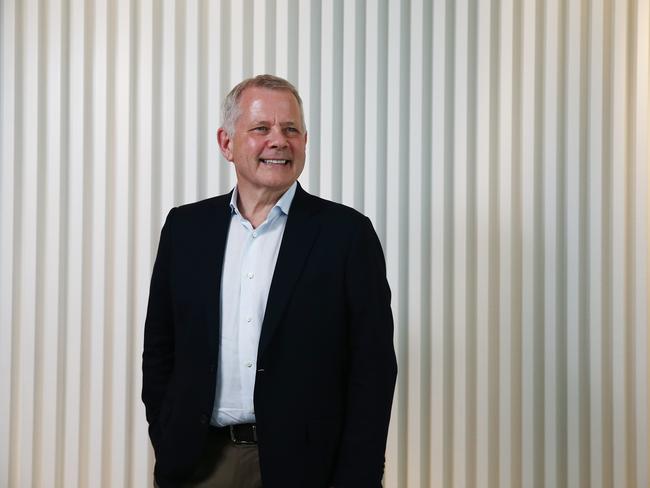
PHILIP CHRONICAN
Philip Chronican is set to become one of the country’s most powerful bankers as the next Chairman of the National Australia Bank.
He is one of the new faces of banking after the shockwaves the banking royal commission sent through the sector.
Heads rolled and top figures stepped down including NAB’s chairman Ken Henry and chief executive Andrew Thorburn, who were singled out in Commissioner Kenneth Hayne’s final report earlier this year.
It was a fall from grace for Dr Henry, who had previously served as the head of the Treasury department and was commissioned by the Rudd Government in 2008 to conduct a review of Australia’s tax system. He had also been a senior adviser to Paul Keating.
Chronican has been a non-executive director at NAB since 2016 and served as chairman of the board’s risk committee. He was appointed NAB’s chief executive in March after Thorburn stepped down, and then within days was named the next Chairman to take over from Dr Henry in November.
NAB’s new chief executive from next year will be an entirely new face — New Zealand-born banker Ross McEwan, who has worked as chief executive of the Royal Bank of Scotland since 2013.
Chronican and McEwan will have a tough road ahead to rebuild public trust following the scandals and rip offs exposed by the banking royal commission.
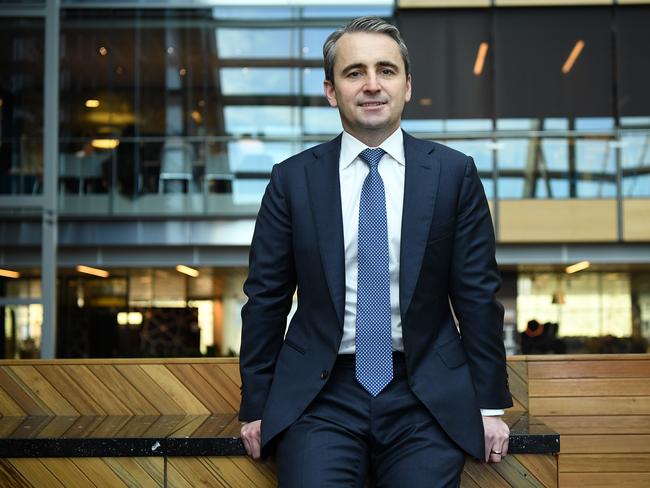
MATT COMYN
Matt Comyn is one of the new faces of banking in Australia.
The new Commonwealth Bank chief executive is considered to have come through the banking royal commission fairly well, despite explosive revelations during the hearings that CBA financial planners charged clients fee for years after they died.
Comyn took over from former chief executive Ian Narev in April 2018, when the commission was already underway.
It gave him some distance from CBA’s past actions, despite having previously been the bank’s head of Retail Banking Services
CBA had announced Narev’s departure in late 2017 in the wake of Austrac launching legal action against the bank over allegations it had breached anti-money laundering laws more than 53,000 times. As the new boss, Comyn repeatedly acknowledged and apologised for the “unacceptable” failures at CBA in past years and declared his intention to rebuild public trust in the bank.
When Commissioner Kenneth Hayne handed down his final report, he noted he was persuaded Comyn was “well aware of the size and nature of the tasks that lie ahead of CBA”.
It makes him one of Australia’s most powerful bankers and a key figure leading reform in the financial sector.
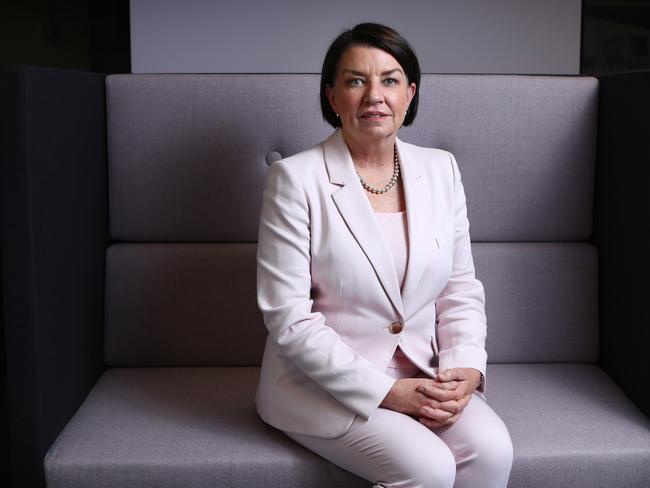
ANNA BLIGH
Former Queensland Premier Anna Bligh has been the chief lobbyist for the banks since February 2017, representing the sector at a time of unprecedented scrutiny.
Bligh initially argued strenuously against a banking royal commission.
But since its explosive revelations and Commissioner Kenneth Hayne’s final report, she has been key in presenting the banks’ mea culpa to the public and their vow to learn the lessons of the royal commission.
Bligh was premier of Queensland for five years prior to joining the Australian Banking Association.
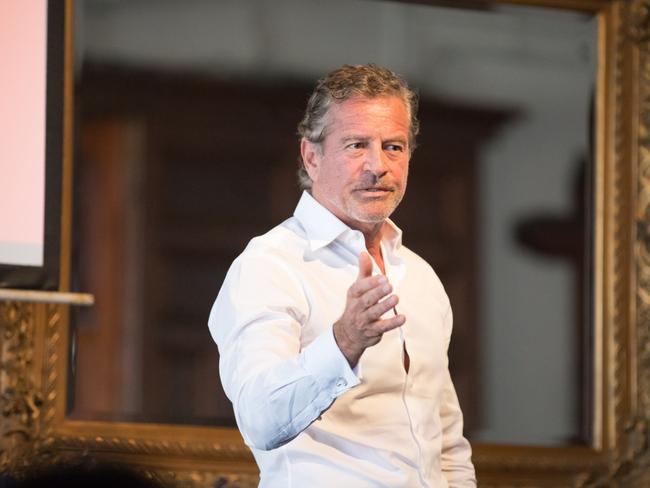
MARK BOURIS
Like Donald Trump, Mark Bouris is a former host of The Apprentice and The Celebrity Apprentice, albeit the Australian versions.
And while Bouris hasn’t quite matched the US President in the power stakes, it’s clear he has friends in high places.
The founder and chairman of Wizard Home Loans and Yellow Brick Road had a recent win in personally lobbying Prime Minister Scott Morrison and Treasurer Josh Frydenberg to dump the government’s support for a banking royal commission recommendation to ban mortgage broking commissions.
Frydenberg revealed the backflip in March, saying the government had reversed its position because it was “concerned about the impact on competition in the mortgage-lending market”. He said the government stood “side-by-side with mortgage brokers”.
Bouris wrote to associates saying he had personally lobbied the PM and Treasurer for the “positive outcome”.
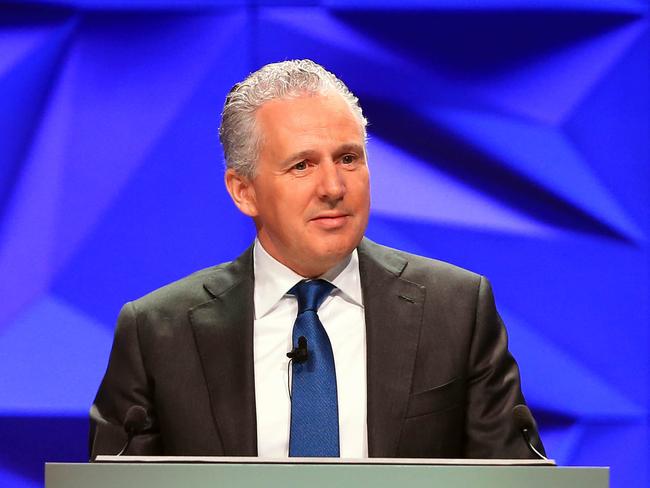
ANDREW PENN
Telstra chief executive Andy Penn has fairly obvious power.
But as boss of the nation’s biggest telco, which employs more than 30,000 people, his words also carry weight when he speaks out on issues from the National Broadband Network to Australia’s immigration policies.
Penn recently spoke out about the need for more skilled migration, saying the “negative commentary” around immigration in Australia, the UK and US was “unhealthy” and “potentially dangerous”.
Telstra is also one of the more prolific companies when it comes to wining and dining federal MPs.
In the 45th parliament, Telstra gave MPs tickets to attend State of Origin, soccer matches, an Adele concert, corporate box tickets to see rugby matches and tickets to the Australian Ballet.

PAUL O’SULLIVAN
Optus chairman Paul O’Sullivan has pretty obvious power at the helm of the country’s second biggest telco.
But he also is connected to some of the country’s most powerful corporate and political figures through his other roles.
O’Sullivan is a board member of a number of other high profile companies, including soft drink giant Coca-Cola Amatil.
He also has links to senior federal politicians as Chairman of the federal government-owned Western Sydney Airport Company.
The businessman appeared alongside Prime Minister Scott Morrison at a press event last year to mark the start of construction on the new airport, which will be owned and operated by the government.
Optus is also prolific in providing free tickets to sporting events for MPs as a brand partner of the Australian Open, the Australian Olympic Committee and WA’s main sports stadium.
Federal ministers Josh Frydenberg, Greg Hunt, Alan Tudge, Dan Tehan and Paul Fletcher are just some of the MPs who have received tickets from the telco to events such as the Australian Open or Commonwealth Games events.
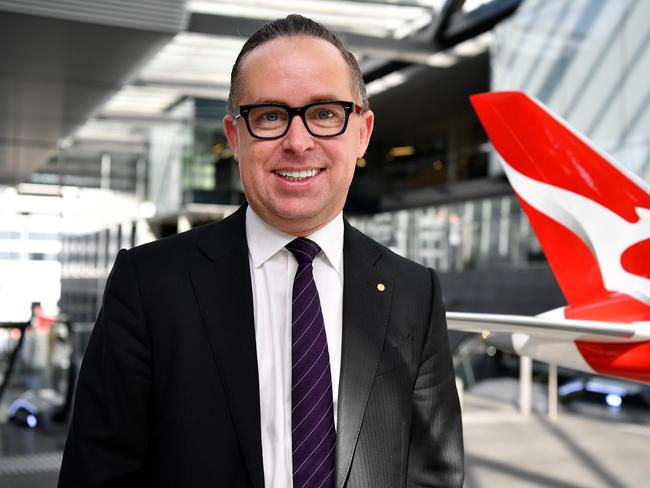
ALAN JOYCE
Alan Joyce is one of Australia’s most prominent business figures.
As the long-time chief executive of Qantas, he has been outspoken on issues such as Malcolm Turnbull’s company tax cuts.
But Joyce has also used his position as a leading corporate figure to influence public debate on social issues.
In 2017, he was a key supporter of same-sex marriage during the divisive postal vote campaign and his name — and Qantas’s sponsorship of Australian Rugby Union — popped up again when Rugby Australia recently sacked Israel Folau.
Earlier this year, Joyce was asked to extend his term with Qantas until 2022.
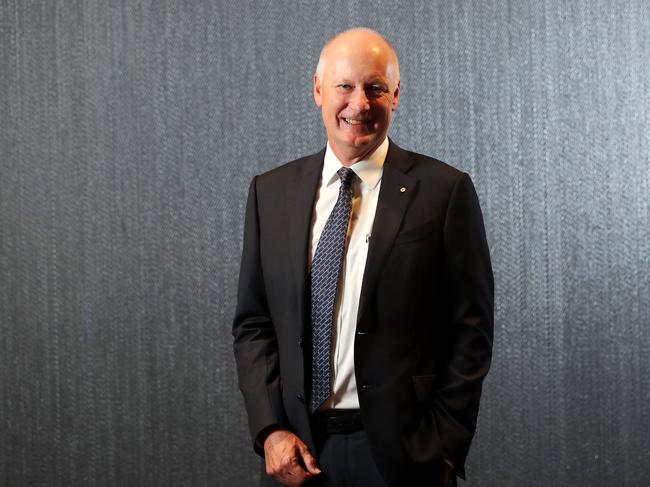
RICHARD GOYDER
AFL Commission boss Richard Goyder has long been one of the most influential people in corporate Australia.
His role on the boards of a number of big companies or organisations gives him obvious power to affect change but it also ensures his voice carries weight when he speaks out on key issues.
Goyder was appointed chairman of oil and gas giant Woodside in 2017.
Along with Woodside chief executive Peter Coleman, he has used the position to call for a price on carbon and “responsible” action to tackle climate change.
Goyder was also appointed chairman of Qantas in November 2017, and heads up the powerful Australian Football League Commission, the WA Symphony Orchestra and the Channel 7 Telethon Trust.
Goyder was previously the chief executive and managing director of Wesfarmers from 2005 to 2017.
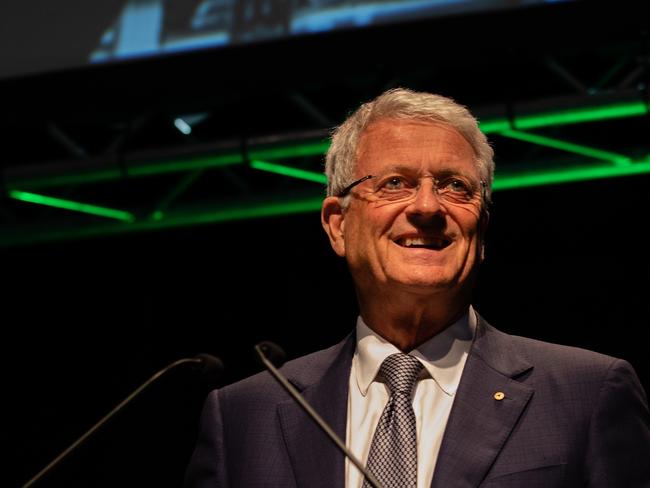
MICHAEL CHANEY
Michael Chaney is another one of Australia’s most influential business leaders.
And like Richard Goyder and David Gonski, he could easily warrant the nickname “chairman of everything”.
Chaney was chairman of Woodside until last year and previously the chairman of NAB. He’s also a former Chancellor of The University of Western Australia.
Chaney is currently chairman of Wesfarmers.
His links to Australia’s political leaders run deep as a long-time corporate figure. But Chaney is also the son of Menzies government minister Sir Fred Chaney and brother to former Deputy Liberal leader Fred Chaney.
Both Wesfarmers and Woodside have long been significant political donors to both Labor and the Liberals.
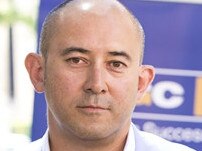
THE BUCKERIDGE BROTHERS
The heirs to construction tycoon Len Buckeridge’s empire are proving to be no less connected than their patriarch.
Buckeridge’s company BGC has been a prominent political donor since his death in 2014.
It gifted $31,250 to the Liberal Party WA Division in 2016-17 and $104,950 to the Liberals and $13,820 to the National Party in 2015-16.
In the 45th parliament, the politicians’ interest register shows BGC also gifted wine to MPs, tickets to concerts by Green Day, Taylor Swift, Cat Stevens and Stevie Nicks and tickets to the Hopman Cup tennis tournament in Perth.
Buckeridge’s sons Sam and Andrew, and stepson Julian Ambrose, have been at the helm of the company since his death, although the trio took a step back this year to be non-executive directors.
Ambrose was named as the host of a dinner of senior WA Liberals including Mathias Cormann, Christian Porter, Michael Keenan and state powerbroker Peter Collier in early 2018 in Niki Savva’s book on the leadership spill Plots and Prayers.

ANDREW MACKENZIE
When the head of BHP Billiton declares a “concerted global effort” is required to tackle climate change and announces a new $590 million climate investment fund, parliaments around the world sit up and take notice.
As do other major polluters.
Andrew Mackenzie also announced in July that BHP would set medium term targets next year to achieve its goal of net-zero emissions by 2050, including setting targets for its customers to cut emissions further down the supply chain.
He has also been a vocal supporter of carbon pricing.
It’s this capacity to drive change as the head of a mining giant which makes Mackenzie one of the most powerful figures in Australia.
He has also been vocal in his support for an indigenous voice to parliament and personally lobbied US President Donald Trump in 2017 not to leave the Paris Agreement on climate change.
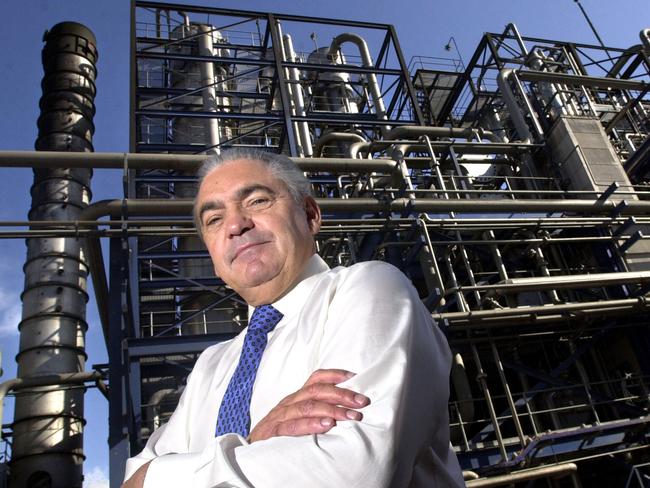
DICK HONAN
Dick Honan is chairman of wheat producer the Manildra Group, one of Australia’s largest political donors.
The agribusiness, owned by Honan’s family and founded by his father, has donated millions to the country’s major political parties over more than two decades, including $171,350 to the Nationals in 2017-18.
It’s power player stance was made clear in 2002, when then prime minister John Howard handed out lucrative ethanol production rebates, which predominantly benefited the Manildra Group.
Mr Howard had met with Dick Honan prior to the decision, although both denied the talks prompted the reforms.
Dick’s children are also involved in the business. His son John Honan is the managing director.
